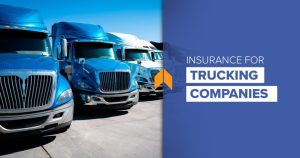
Trucking is inherently a risky industry and cannot function without insurance. This is true today more than ever before. Fleet managers who are not strong on managing insurance eventually run their companies into serious troubles.
For example, it took a couple of fatal accidents to push Fleetwood transportation to shutdown its operations. Primary cause cited was the inability to secure insurance. Since FMCSA mandates minimum liability and cargo insurance, lack of insurance spelled doom for this company.
You can also go out of business even without a single accident, all you need is enough safety violations. This is what happened to A.L.A. Trucking. “I didn’t do anything wrong with the company,” said the owner Alan Adams, while blaming FMCSA and the rising insurance costs for the ultimate demise of the company.
Clearly insurance is critical so what these fleet managers could have done to secure the continuity of their business.
Looking at the past decade we see a continuous rise in accidents and insurance costs across the United States. Not only the frequency of claims but also their severity. The average trucking verdict value spiked 867% from 2010 to 2018; from 1 million dollars to more than 22 million dollars! The high probability of safety violations, accidents and the nuclear verdicts have given a whole new meaning to the word “safety” in the trucking industry.
Today trucking business continuity and profitability is simply not possible without effective safety management, ensuring not only prevention of safety violations and accidents but also production of credible evidence and exoneration of drivers. Once a trucking company becomes better at safety management it can negotiate with insurance companies for better deals. In the sections below we have given brief details on these two steps to reduce insurance costs.
1.Using Technology to Improve Fleet Safety
There is good news waiting for fleet managers striving to cut down their insurance costs. Right now many insurance companies are happy to give discounts to trucking companies with good safety records.

Here is why this is happening. Drop in freight rates has been driving many freight carriers to close down, creating a hyper competitive market for insurance companies, where there are fewer trucking companies to chase. As the revenues and growth targets have gone down insurance companies are struggling to manage their finances.
Therefore, according to Insurance Business magazine, insurance companies “are now looking to “aggressive” pricing strategies” where trucking companies “having put in the hard yards to improve their safety records” can now get the benefit of rate cuts.
Advanced telematics is the key technology used by trucking companies to “shore up cover, improve their safety and demonstrate progress.” Apart from hiring drivers with good safety records and timely maintenance, following are some key steps based on research (1, 2) that must be done to achieve results:
1. Purchase GPS tracking devices with good location and safety reporting software.
2. Monitor safety reports to identify risky behaviors that need attention such as speeding, harsh driving, hours of service violations, tailgating, etc.
3. Use safety reporting data to plan and execute driver coaching sessions and better driver training.
4. Bring improvement in driving behaviors like reduced speeding and better driving.
5. Try to use covert GPS trackers to ensure maximum security of trailers and loads. Use associated real-time tracking and alerts for quick recovery of lost vehicles and assets.
According to David Heller, Vice President of government affairs of TCA (Truckload Carriers Association) if fleets “don’t have the technology to monitor speed, braking and how safe the driver drives, fleet managers can’t track their fleets very easily. “Improving safety of your operations will always have an effect on insurance costs. That’s a good place to start.”
2. Work with Trucking Focused Insurance Companies
Often trucking companies make mistakes and select the wrong insurance company. “We have had to fix past problems because a trucking company went with

an insurance company that didn’t know the industry,” said Oralndo Frasca, owner and president of Rogers Insurance Services in California. “Lots of claims go unpaid because the policies weren’t written correctly,” he said.
Based on research (1, 2, 3, 4) following are some of the best insurance companies in the United States specializing in the trucking industry: before talking to them you must collect data for negotiation as mentioned in item one above.
1. Progressive (best overall and best for discounts)
2. Sentry (best for single trucks)
3. The Hartford (best for fleets)
4. CoverWallet (best value)
5. State Farm (best customer service)
6. 1st Guard (best for commercial truck insurance)
7. Great West Casualty (best for commercial truck insurance)
8. RLI Insurance (best for commercial truck insurance)
9. biERK (best for low-cost owner operator truck insurance)
10. Smart Financial (best for a wide network of knowledgeable agents)
Managing and reducing insurance costs is now a fundamental part of running a trucking business. It not only ensures profitability but also lays down a solid safety framework for a sustainable business.
Disclaimer
The information provided in this blog is for helping the readers only, in this regard our company does not benefit from any organizations mentioned here.
